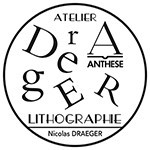Systematization of information is a necessity in the vast majority of fields of knowledge and social practice. The availability of true and ordered data facilitates professional practice in many ways. That is why law firms and the legal practice as a whole have been equipped with technological tools to cope with the current demands that are constantly updated and demand to be at the forefront of change.
Legaltech was born out of this need to use technology to improve efficiency and automate legal practice. The inclusion of the technological field in the law also requires a transformation in the understanding of legal professional practice, since only the inclusion of new tools has brought with it new and still unknown legal situations.
In France, there was the first restriction on the use of a certain Legaltech program. The European country, through a new justice reform law, is imposing a prison sentence of up to five years for those who publish statistical information about the decisions and behavior patterns of judges based on the sentences they dictate. The measure does not prohibit the use of the tool within the country, it only expresses an obligation not to publish the obtained data regarding the model of execution of the judge's sentences. Until now, these applications have also been used to identify trends in the behavior of judges by evaluating the number of sentences, the trajectory of the person who dictates them, their arguments and the position of the judge on the subject of the case.
As LegalTech changes the legal landscape, managing complex international cases such as those involving Interpol Red Notices has become more efficient. For individuals dealing with an red notice interpol in France, these technological advances support faster and more efficient judicial processes, helping to resolve cross-border conflicts and ensure compliance with French and international law.
In general, Legaltech offers the following features:
- Automate consultations on legal topics and processes without the intervention of a lawyer.
- Automate the daily work of lawyers with software or applications that simplify tasks.
- Modification of client-lawyer relations through the use of technological applications. The customer is the center of the entire strategy of automation systems, offering personalized solutions for performing the relevant procedures and obtaining the necessary information.
The development of legaltech, thanks to its work and benefits, has contributed to numerous enterprises responsible for the creation of technological programs for the provision of specific services in the legal sector. These tools have provided a safe and effective response to a variety of everyday legal practice tasks, and have demonstrated the changing profile of the current and future lawyer. An example is the case of the American chain Best Buy, which implemented the automation of product warranty claims processes, which are fully parameterized for the first and second instances. Only in exceptional cases is there a third human authority that intervenes through a customer service agent who finally analyzes the claimant's request and claim.
Challenges for a lawyer
In this sense, a legal professional must have extensive knowledge in the field of digital law, which involves the intelligence to program the search for solutions or evaluate technological tools that speed up their work and offer better services to the client. Likewise, the professional must be well-versed in the communication and digital marketing tools that allow him to assert himself in digital channels, which are the places where customers and the public are now.
Learn also: How to fight defamation on the Internet?
